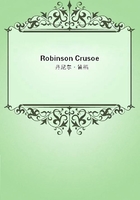If the Nebraska Bill is the real author of the benevolent works, it is rather deplorable that it has for so long a time ceased working altogether. Is there not some reason to suspect that it was the principle of the Revolution, and not the principle of the Nebraska Bill, that led to emancipation in these old States?
Leave it to the people of these old emancipating States, and I am quite certain they will decide that neither that nor any other good thing ever did or ever will come of the Nebraska Bill.
In the course of my main argument, Judge Douglas interrupted me to say that the principle of the Nebraska Bill was very old; that it originated when God made man, and placed good and evil before him, allowing him to choose for himself, being responsible for the choice he should make. At the time I thought this was merely playful, and I answered it accordingly. But in his reply to me he renewed it as a serious argument. In seriousness, then, the facts of this proposition are not true as stated. God did not place good and evil before man, telling him to make his choice.
On the contrary, he did tell him there was one tree of the fruit of which he should not eat, upon pain of certain death. I should scarcely wish so strong a prohibition against slavery in Nebraska.
But this argument strikes me as not a little remarkable in another particular--in its strong resemblance to the old argument for the divine right of kings." By the latter, the king is to do just as he pleases with his white subjects, being responsible to God alone. By the former, the white man is to do just as he pleases with his black slaves, being responsible to God alone.
The two things are precisely alike, and it is but natural that they should find similar arguments to sustain them.
I had argued that the application of the principle of self- government, as contended for, would require the revival of the African slave trade; that no argument could be made in favor of a man's right to take slaves to Nebraska which could not be equally well made in favor of his right to bring them from the coast of Africa. The Judge replied that the Constitution requires the suppression of the foreign slave trade, but does not require the prohibition of slavery in the Territories. That is a mistake in point of fact. The Constitution does not require the action of Congress in either case, and it does authorize it in both. And so there is still no difference between the cases.
In regard to what I have said of the advantage the slave States have over the free in the matter of representation, the Judge replied that we in the free States count five free negroes as five white people, while in the slave States they count five slaves as three whites only; and that the advantage, at last, was on the side of the free States.
Now, in the slave States they count free negroes just as we do; and it so happens that, besides their slaves, they have as many free negroes as we have, and thirty thousand over. Thus, their free negroes more than balance ours; and their advantage over us, in consequence of their slaves, still remains as I stated it.
In reply to my argument that the compromise measures of 1850 were a system of equivalents, and that the provisions of no one of them could fairly be carried to other subjects without its corresponding equivalent being carried with it, the Judge denied outright that these measures had any connection with or dependence upon each other. This is mere desperation. If they had no connection, why are they always spoken of in connection?
Why has he so spoken of them a thousand times? Why has he constantly called them a series of measures? Why does everybody call them a compromise? Why was California kept out of the Union six or seven months, if it was not because of its connection with the other measures? Webster's leading definition of the verb "to compromise" is "to adjust and settle a difference, by mutual agreement, with concessions of claims by the parties." This conveys precisely the popular understanding of the word "compromise.
We knew, before the Judge told us, that these measures passed separately, and in distinct bills, and that no two of them were passed by the votes of precisely the same members. But we also know, and so does he know, that no one of them could have passed both branches of Congress but for the understanding that the others were to pass also. Upon this understanding, each got votes which it could have got in no other way. It is this fact which gives to the measures their true character; and it is the universal knowledge of this fact that has given them the name of "compromises," so expressive of that true character.
I had asked: "If, in carrying the Utah and New Mexico laws to Nebraska, you could clear away other objection, how could you leave Nebraska 'perfectly free' to introduce slavery before she forms a constitution, during her territorial government, while the Utah and New Mexico laws only authorize it when they form constitutions and are admitted into the Union?" To this Judge Douglas answered that the Utah and New Mexico laws also authorized it before; and to prove this he read from one of their laws, as follows: "That the legislative power of said Territory shall extend to all rightful subjects of legislation, consistent with the Constitution of the United States and the provisions of this act."
Now it is perceived from the reading of this that there is nothing express upon the subject, but that the authority is sought to be implied merely for the general provision of "all rightful subjects of legislation." In reply to this I insist, as a legal rule of construction, as well as the plain, popular view of the matter, that the express provision for Utah and New Mexico coming in with slavery, if they choose, when they shall form constitutions, is an exclusion of all implied authority on the same subject; that Congress having the subject distinctly in their minds when they made the express provision, they therein expressed their whole meaning on that subject.















